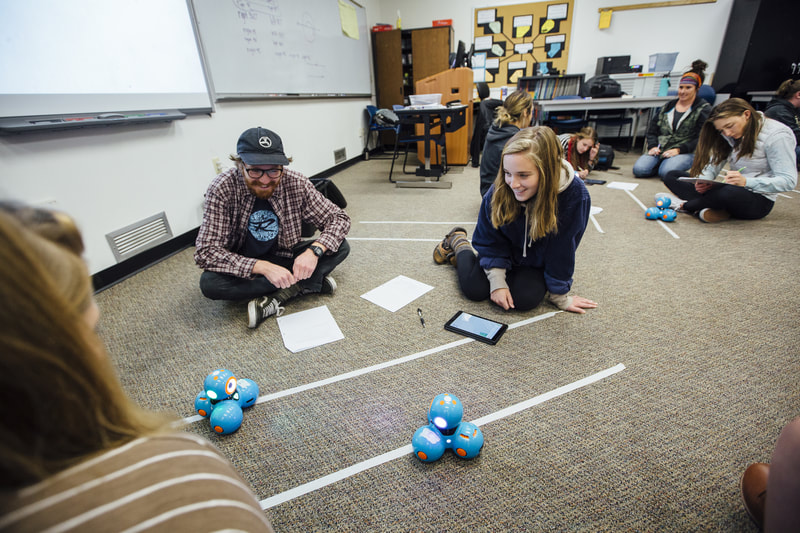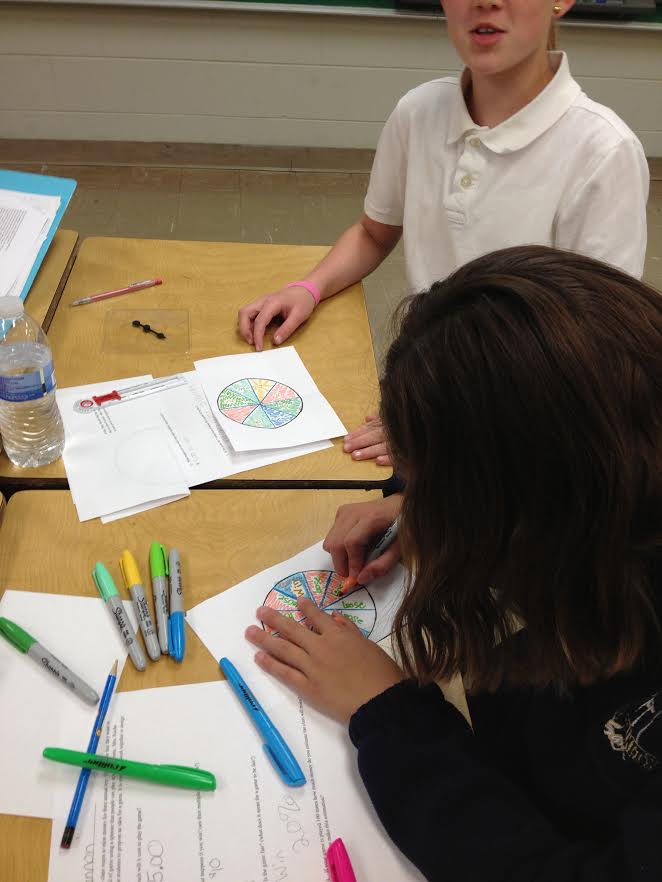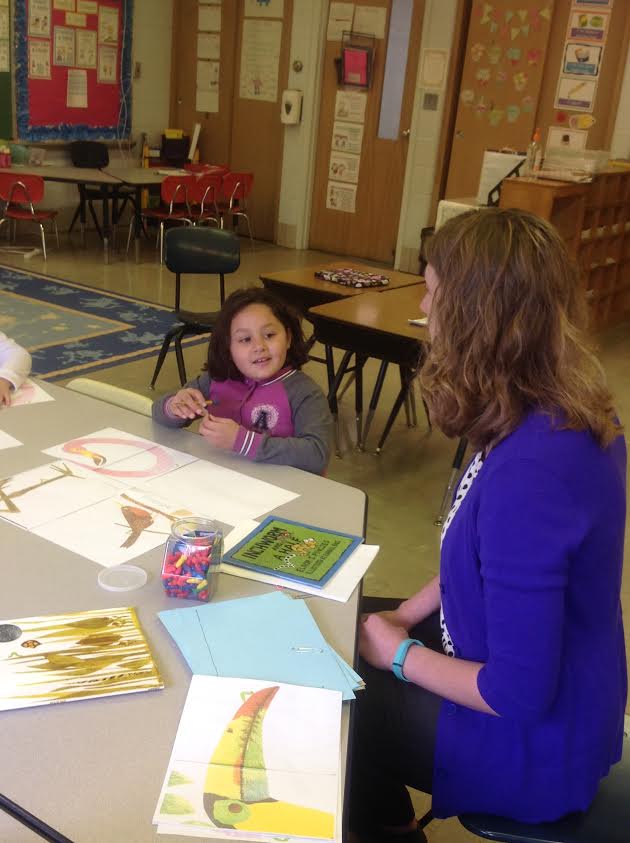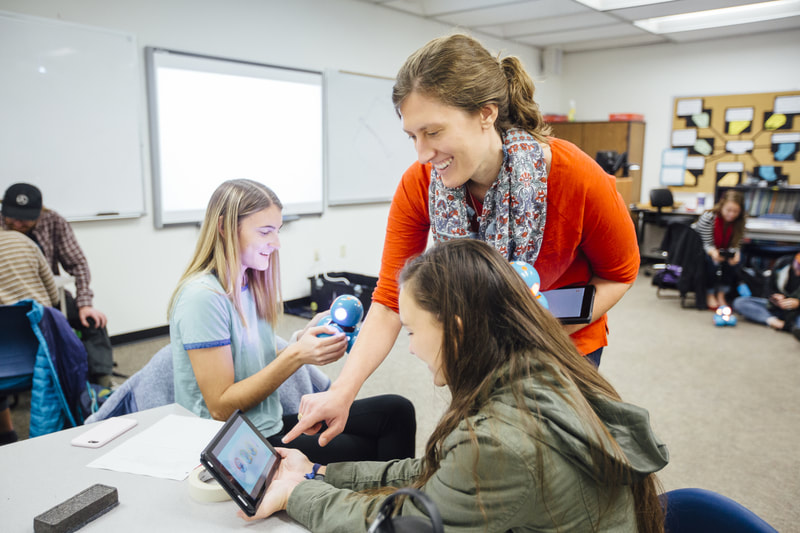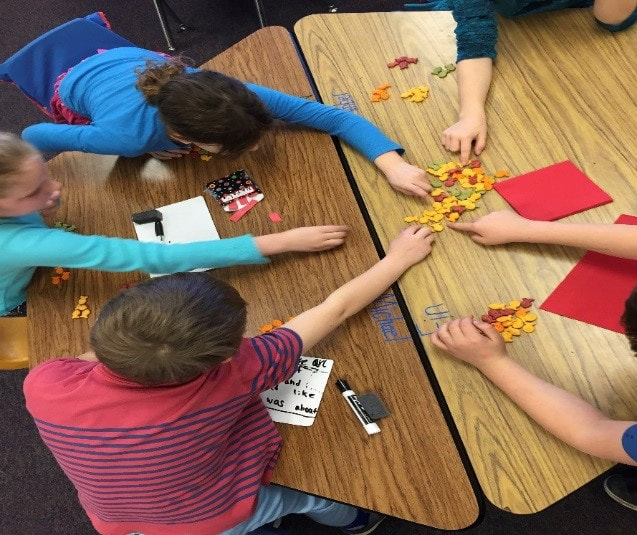Teaching Philosophy
As a mathematics educator, I strive to create learning spaces for pre-service teachers, in-service teachers, and, subsequently, their students, that empower them as knowers and doers of mathematics. Mathematics education is a tool for empowerment, creativity, and joy. In my classroom, I strive to create opportunities for students and teachers to discover mathematics as a tool that honors their lived experiences, supports their mathematical identities, and allows them to see and understand the world through different perspectives.
I want my students to see learning as a life-long process. When attempting to solve a mathematics problem, the answer may not always be apparent. It is essential to learn how to ask questions, explore, form conjectures, and improve upon initial conjectures. To foster these dispositions, I pose rich, interesting problems that do not have simple answers. My students work collaboratively, discuss ideas, and pose questions. We also take time to discuss their conceptions of the problem and how they might change across time. Lastly, I require my students to write and report out their thinking as well as respond and revise based on constructive criticism. This fosters communication skills they will need as future teachers and develops their mathematical reasoning. By fostering life-long learning, my hope is that students leave my course with the knowledge that not all answers come easily or immediately, but, through critical thinking and perseverance, they can make sense of any situation.
I also want to instill curiosity and wonder in my students. As a teacher of future teachers, I want my students to see mathematics as creative, purposeful, and connected to their lives so that they honor these attributes of mathematics in their future classrooms. To encourage students to become confident, curious mathematicians, I design innovative activities that are important and relevant to them. To encourage confidence, I provide formative assessment throughout my courses. In a typical course, I incorporate several assignments across the semester in which students can share their reasoning and receive feedback without being penalized. It encourages them to see their learning as something that is malleable and can be improved without fearing that they will be wrong.
My classroom is often a "living laboratory" in that I believe research on learning can be both cyclical and generative. We, as researchers, can document ideas about learning that can be shared with other researchers and also integrated into future teaching practices.
You can find the courses that I have taught in the Courses Taught tab.
I want my students to see learning as a life-long process. When attempting to solve a mathematics problem, the answer may not always be apparent. It is essential to learn how to ask questions, explore, form conjectures, and improve upon initial conjectures. To foster these dispositions, I pose rich, interesting problems that do not have simple answers. My students work collaboratively, discuss ideas, and pose questions. We also take time to discuss their conceptions of the problem and how they might change across time. Lastly, I require my students to write and report out their thinking as well as respond and revise based on constructive criticism. This fosters communication skills they will need as future teachers and develops their mathematical reasoning. By fostering life-long learning, my hope is that students leave my course with the knowledge that not all answers come easily or immediately, but, through critical thinking and perseverance, they can make sense of any situation.
I also want to instill curiosity and wonder in my students. As a teacher of future teachers, I want my students to see mathematics as creative, purposeful, and connected to their lives so that they honor these attributes of mathematics in their future classrooms. To encourage students to become confident, curious mathematicians, I design innovative activities that are important and relevant to them. To encourage confidence, I provide formative assessment throughout my courses. In a typical course, I incorporate several assignments across the semester in which students can share their reasoning and receive feedback without being penalized. It encourages them to see their learning as something that is malleable and can be improved without fearing that they will be wrong.
My classroom is often a "living laboratory" in that I believe research on learning can be both cyclical and generative. We, as researchers, can document ideas about learning that can be shared with other researchers and also integrated into future teaching practices.
You can find the courses that I have taught in the Courses Taught tab.
